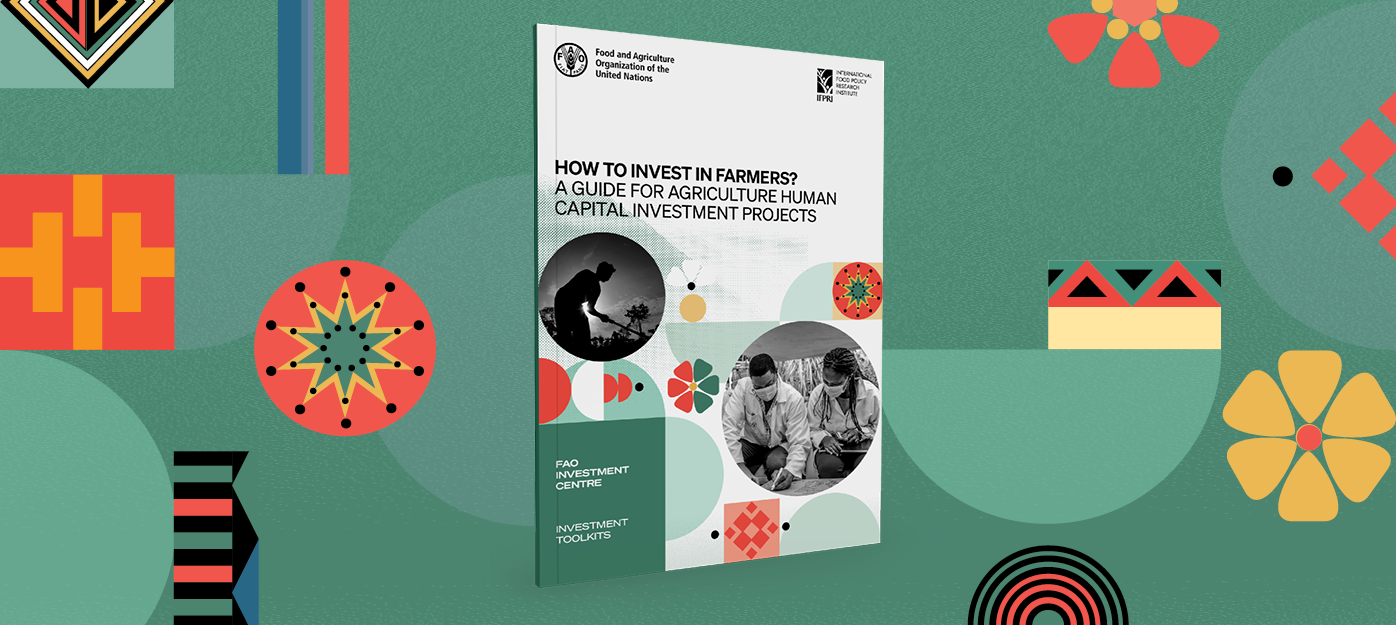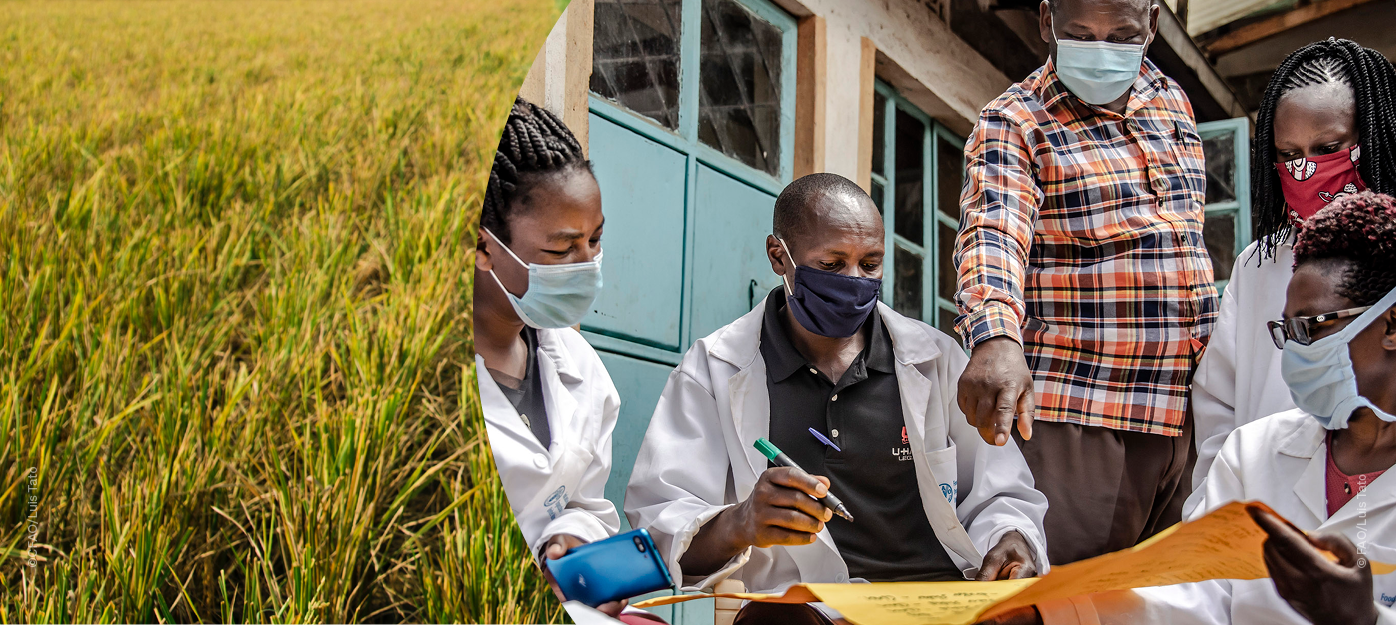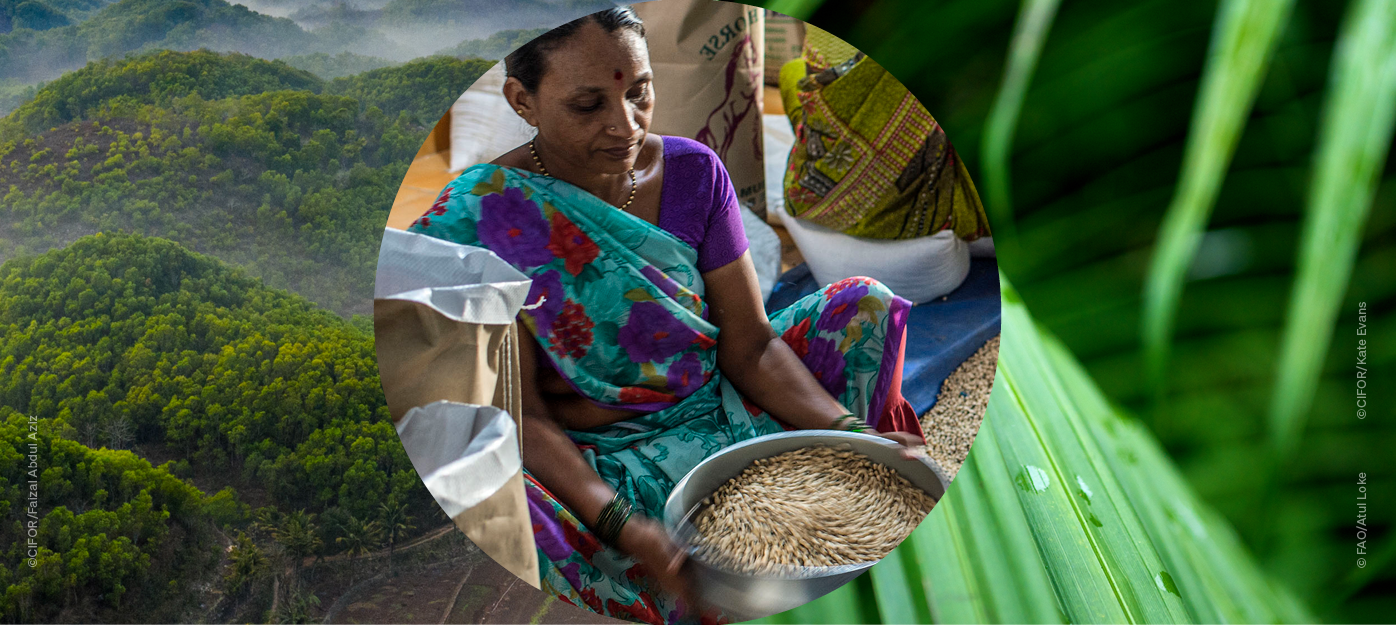Launching a step-by-step guide to unlocking farmers’ potential

The FAO Investment Centre has launched a toolkit aimed at empowering farmers and enabling agricultural human capital investments. More than 60 representatives from governments, national and international development banks, the private sector and development partners attended the virtual launch event in October 2023.
How to invest in farmers? A guide for agriculture human capital investment projects amasses research findings, practical tools and guidance to support sounder investment decisions on projects and policies to strengthen farmers’ capacities.
“FAO is deeply committed to transforming global agrifood systems, aiming for greater productivity, sustainability, inclusivity and equity.” said Mohamed Manssouri, Director of the FAO Investment Centre. “To achieve this transformation, we must invest in people within agrifood systems – particularly smallholder agricultural producers and those in underserved rural areas.”
Driving innovation and empowering farmers
The toolkit is the culmination of a global study into agriculture human capital investment from FAO and the International Food Policy Research Institute (IFPRI), with support from the FAO Research and Extension Unit and the CGIAR Research Program on Policies, Institutions, and Markets (PIM).
The study generated a wealth of evidence on promising investments in farmers’ human capital. A global report, nine country case studies and three investment briefs have also been published, in addition to the new toolkit.
The launch event was opened by Ida Christensen, Senior Rural Sociologist at the FAO Investment Centre, who underscored the urgency of investing in farmers.
Mohamed Manssouri emphasized the current state of global agricultural development finance, revealing that less than 3 percent of it is allocated to enhancing the knowledge, skills, and capacities of farmers. Human capital investment often takes a back seat to hardware-focused investments in infrastructure and equipment.
John Preissing, former Deputy Director (retired) of the FAO Investment Centre, and one of the authors of the toolkit, outlined the potential of the toolkit to drive innovation, boost productivity, strengthen farm management, and empower small-scale farmers.

Unpacking the toolkit
Panelists discussed how the toolkit offers a comprehensive roadmap for agricultural human capital investment and serves to inspire those seeking to invest in farmers.
Steven Franzel, an agriculture human capital specialist, who was part of the toolkit development team, outlined each of the toolkit’s seven accessible and actionable modules. He highlighted how the toolkit provides core foundations and a clear framework for successful agriculture human capital investment.
Drawing on experiences from more than 20 initiatives globally where building farmers’ capacity was a key focus, the toolkit features case studies, concrete examples and methodology-in-action.
Kristin Davis, Senior Research Fellow, IFPRI, addressed the importance of social protection programs in building human capital and resilience. She emphasized how investment in human capital can help to increase rural incomes, improve health and nutrition, support social cohesion and enhance the inclusion of women and youth

User experiences: investing in farmers
Perspectives were shared by toolkit users, including Marie Aude Even, Senior Biodiversity Technical Specialist at IFAD, who stressed that building human capital is vital to achieving resilient, sustainable and long-term results in investment projects.
Priti Kumar, Senior Agriculture Specialist at the World Bank noted that the toolkit brings a science-based, long-term approach to capacity building, going beyond mere training and institutional development.
She underscored the value of the toolkit in helping governments and private sector investors understand the impact of interventions, cost-benefit analysis, and economic/financial analysis during various project stages.
“This is just the beginning of a journey to systematically strengthen and transform farmers capacity,” said Manssouri. “Our goal is to inspire further research, analysis, and meaningful investments in agriculture human capital by policymakers, international financial institutions, and development partners.”
